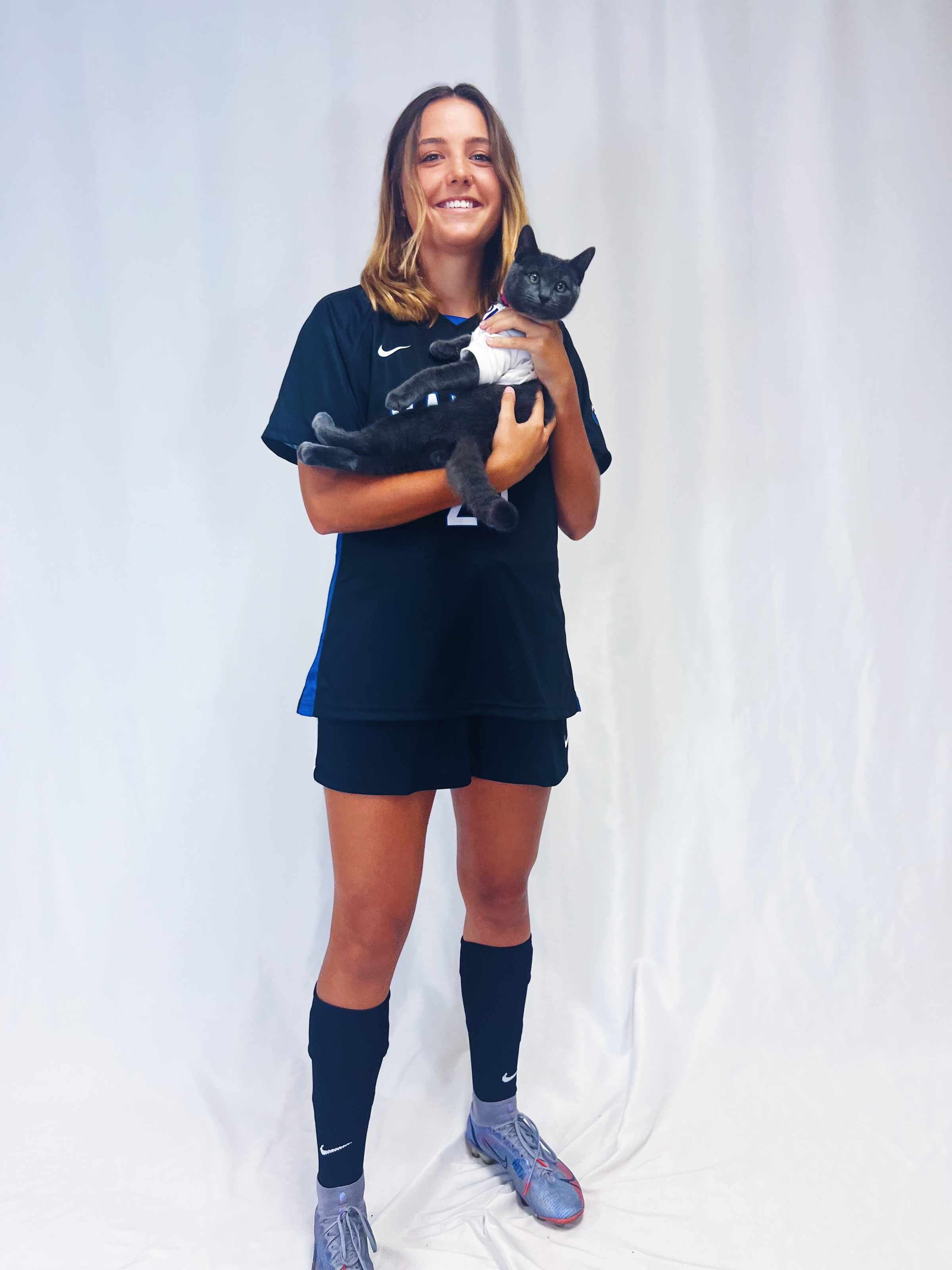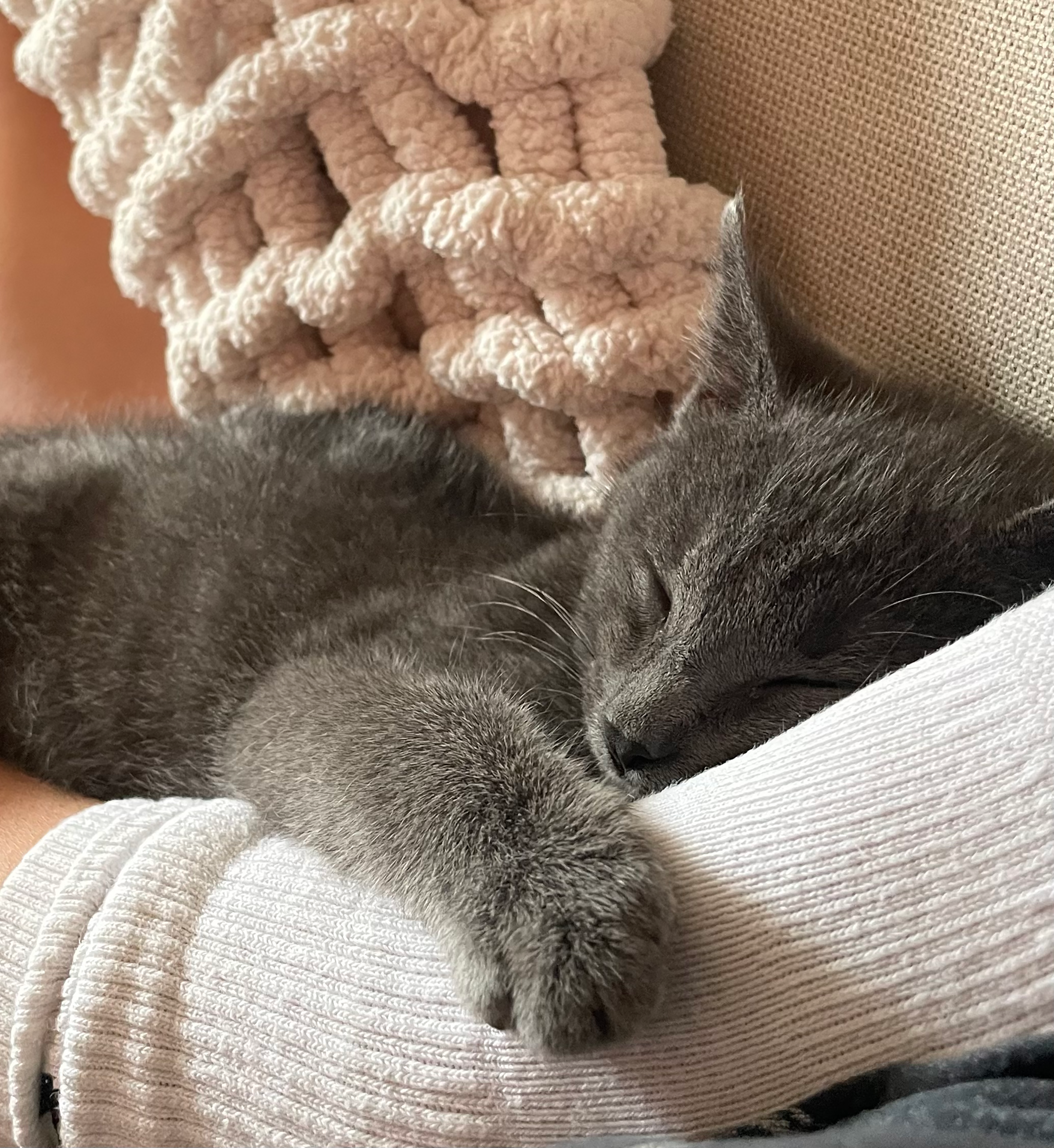Believe it or not, I wasn’t looking forward to my senior year of college. Many of my friends graduated the year before me, last soccer season ended on a bad note, and to top it all, there was the looming closure of my soon-to-be alma mater. All of these issues combined with anxiety and OCD don’t make for a great mix.
Now, halfway through my senior fall semester, I am enjoying life more than ever. I believe this greatly due to my cat. This is why I believe that emotional support animals should be a more common approach to mental health issues.
Finding Eddy
I was at a Mother’s Day brunch with my family when I got a phone call from my girlfriend saying her family found an abandoned kitten at their beach house and she didn’t know what to do with it. I was never a fan of cats. Growing up, I hated them because one scratched me when I was little, and I still have the scar to this day. But when I saw this tiny gray ball of fluff I impulsively said she could bring him to my house. Suddenly, without my parent’s permission, I was the owner of a kitten I named Eddy.
My mom was upset at first but finally agreed to let me keep him under one condition: I would take him to school with me in the fall.
Why pets help

In 2011, the Mental Health Foundation conducted a study with Cats Protection which involved over 600 cat- and non-cat-owning respondents. Half described themselves as currently having a mental health problem. The survey found that 87% of people who owned a cat felt it had a positive impact on their wellbeing.
As summer went on, I found myself enjoying the company of my cat companion. I never really had to take care of anything before and now I had someone who relied on me. I became excited about school and life again thanks to Eddy. We spent the majority of our time together this past summer and developed a great bond. Eddy is a very social guy, who loves everyone and makes even cat haters love him back.
U.S. Department of Housing and Urban Development states, “Emotional support animals by their very nature, and without training, may relieve depression and anxiety, and/or help reduce stress-induced pain in persons with certain medical conditions affected by stress.”
A part of the team
It’s not just me who Eddy has been helping. He has become somewhat of a celebrity on Cabrini’s soccer team. You will often find him hanging out at practice and team bonding events. Since this is Cabrini women’s soccer final season, it’s safe to say there has been a lot of pressure to perform well. Eddy has been a comfort to every player on the team and is always there for emotional support. He even has his own lucky jersey he wears when he’s with his team.
Mental health issues among college students have been on the rise. In 2018, the American College Health Association found that 63% of students they surveyed had experienced overwhelming anxiety in the past year.

Having a cat at college completely changed my life. I am now less anxious and have an overall better outlook on life. Having something like a pet to come home to after a long day gives me something to look forward to. It also makes me happy to think that Eddy makes other people happy. To see the joy on people’s faces when I bring him to practice and the difference he makes in people’s lives makes me happy too.
Seeking help
If you are struggling with mental health issues, maybe an emotional support animal is the right path for you. An emotional support animal must be prescribed by a licensed mental health professional, who does so by issuing an Emotional Support Animal letter. Thanks to the cat distribution system, Eddy fell right into my lap. However, many shelters are looking for people to adopt pets if you need a forever friend.







